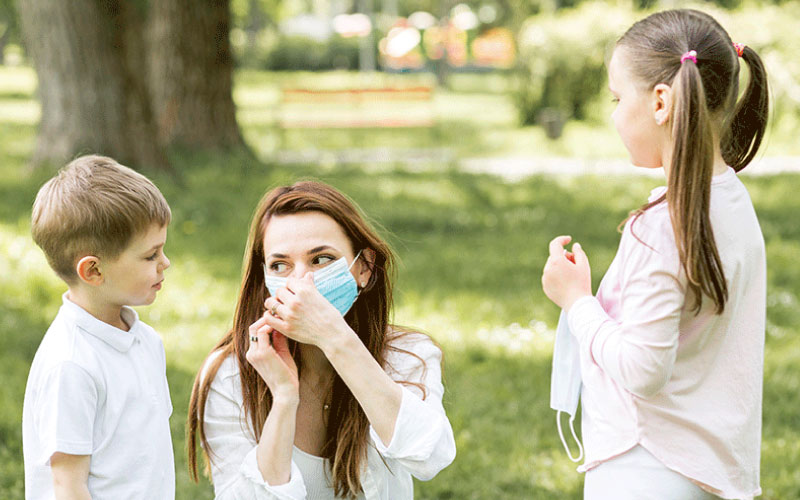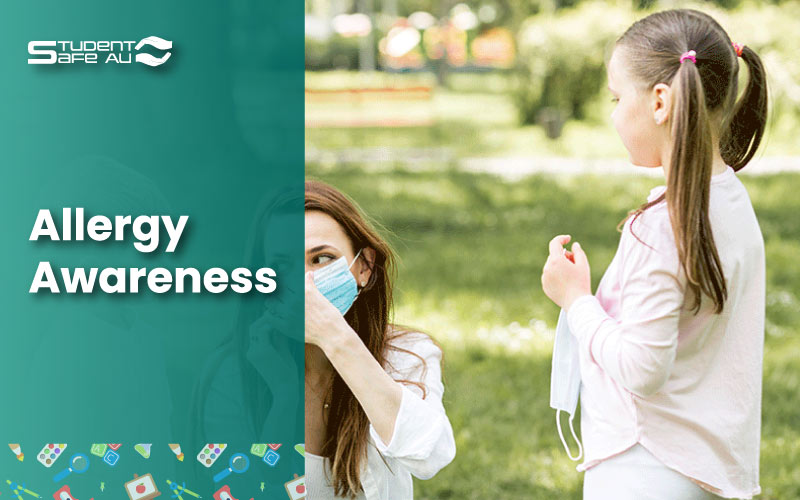Tips for schools on how to educate students on allergy management
Managing allergies in schools is a significant responsibility, especially during out-of-school activities or school trips. These events expose students to new environments where potential allergens may be present, increasing the risk of allergic reactions. For educators and parents, it’s crucial to equip students with the knowledge and skills to protect themselves and respond appropriately to allergy attacks.
Student Safe AU is proud to support independent schools in Australia in providing school transportation management and ensuring student safety.
In this guide, we’ll explore how to teach students about allergy safety, what to prepare, and how to respond calmly and effectively if an allergic reaction occurs.
Understanding Allergy Awareness for Students
Allergies come in various forms, from food allergies to reactions caused by insect bites, pollen, or even certain materials. While younger children may rely heavily on adults for support, it’s important to start teaching allergy awareness early, empowering students of all ages to take responsibility for their safety.
1. Teaching Allergy Awareness by Age Group
Preschool and Early Primary Students
- Simple Education: Use stories or videos to explain what allergies are and how they can affect someone.
- Recognition Skills: Teach young children how to identify their allergens (e.g., peanuts, bee stings) and encourage them to tell adults if they feel unwell.
- Role-playing: Practice scenarios where students alert an adult about feeling sick.
Upper Primary and Secondary Students
- In-depth Understanding: Explain the symptoms of allergic reactions, such as swelling, difficulty breathing, or hives.
- Self-advocacy: Encourage older students to read labels, ask questions about food, and carry their prescribed medications like epinephrine auto-injectors.
- Emergency Response Training: Teach how to use an auto-injector and perform basic first aid.
2. Preparing for a Safe School Trip
Proper preparation is critical for effective student allergy management during school trips.
- Gather Allergy Information: Obtain detailed medical information from parents, including known allergens, symptoms of exposure, and emergency plans.
- Allergy Kits: Ensure students bring necessary medications, such as antihistamines or epinephrine auto-injectors. Store these in a secure but accessible location.
- Allergy-safe Snacks: Provide allergen-free food options, especially if meals are being prepared or shared.
- Staff Training: Ensure teachers and trip supervisors know how to recognise allergic reactions and administer treatment.
By working closely with parents, schools can ensure that all potential risks are addressed before the trip begins.

3. Responding to an Allergy Attack
Despite precautions, allergic reactions can occur. Staying calm and following a plan is essential for effective student allergy management.
Steps to Follow:
- Identify the Reaction: Look for symptoms such as difficulty breathing, rashes, swelling, or nausea.
- Administer Medication: If the student has an auto-injector, administer it immediately and call emergency services.
- Alert Others: Inform all trip supervisors and ensure other students remain calm and reassured.
- Monitor the Student: Stay with the student until professional help arrives.
4. Maintaining Composure and Order
An allergic reaction can be a frightening experience for students and staff. Maintaining composure is vital to keep the situation under control.
- Stay Calm: Use a calm and reassuring tone to prevent panic.
- Delegate Tasks: Assign specific tasks to other staff, such as calling for help, retrieving medical supplies, or supervising the rest of the group.
- Debrief: After the incident, discuss what happened with staff and students to reinforce the importance of allergy management.
5. Encouraging a Supportive Environment
Creating an inclusive and supportive environment ensures that students with allergies feel safe and cared for.
- Peer Education: Teach students about the importance of respecting their classmates’ allergies, such as avoiding sharing food.
- Open Communication: Foster an environment where students feel comfortable discussing their allergies and asking for help.
- Positive Reinforcement: Celebrate instances where students demonstrate good allergy management practices.
Student Safe AU is Your Partner in Allergy Management
At Student Safe AU, we understand that effective student allergy management is a vital aspect of student safety. Our services include:
- Comprehensive Transport Solutions: Safe and reliable school transport and bus hire for education that accommodates the needs of students with allergies.
- Staff Training: Resources to help schools educate their teams on managing allergies and emergencies.
- Customised Plans: Tailored safety protocols to protect every student during school trips.
With student transport safety taken care of by Student Safe AU by your side, educators and parents can have peace of mind knowing that students are in the safest hands.
Conclusion
Teaching students to manage their allergies not only ensures their safety but also empowers them to take charge of their health. From understanding their allergens to responding confidently in emergencies, students of all ages can be equipped with the skills they need to stay safe.
With thorough preparation, a strong support system, and the trusted partnership of Student Safe AU, your school trips and activities can be both safe and enjoyable for every student. Start building your allergy management plan today and make safety a priority!
